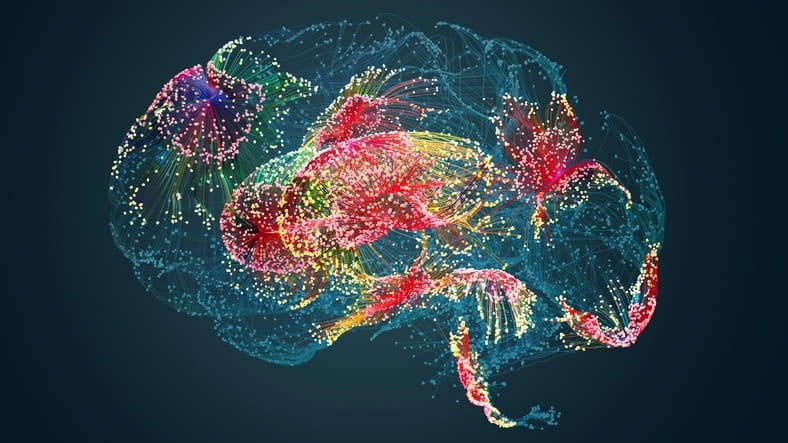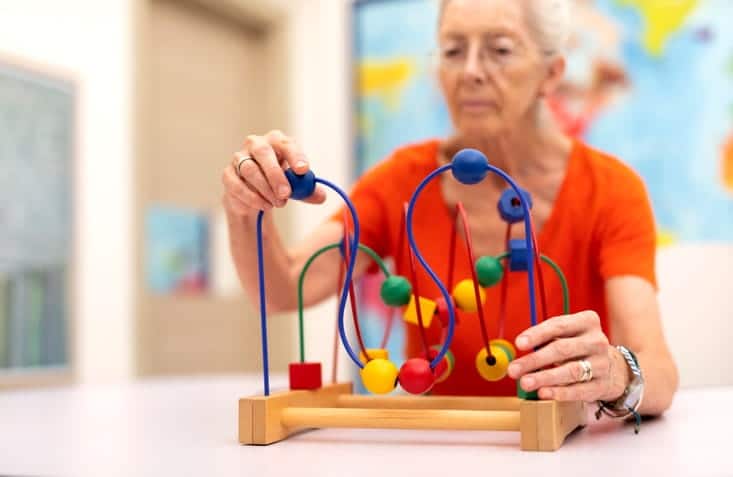According to the Alzheimer’s Association, dementia is when damage to the brain causes problems with memory, problem-solving, and/or other tasks involving thinking. In the majority of dementia cases, the cause is Alzheimer’s disease, but not always, so it’s important to get a proper medical diagnosis. According to the National Institute on Aging (NIH), about a third of people over the age of 85 living in the U.S. have at least one form of dementia.

Keep reading to learn the top five early signs of dementia.
What are the early signs of dementia?
The NIH notes that although dementia is more common the older a person gets, it is not a normal part of the aging process. It is important for anyone experiencing symptoms of dementia to seek medical attention and to be upfront about their experiences and medical history to find the root cause.
Common early dementia signs can include:
1) Uncharacteristic forgetfulness
This can look like:
- Struggling to find the right words when speaking
- Forgetting the names of commonly used objects
- Using odd words to describe things
- Forgetting names, dates, appointments, etc.
- More frequently misplacing things
- Frequently repeating themselves
2) Issues with problem-solving
This can look like:
- Struggling to shop for groceries or manage time
- Difficulty following instructions such as a recipe
- Struggling to do puzzles or play games they once could
3) Emotional and personality changes
This can look like:
- Moodiness
- Becoming isolated
- Acting recklessly
- Being uncharacteristically unchanged by saying hurtful things
- Disinterest in once-enjoyed activities and hobbies
- Paranoia and illusions
4) Getting lost in familiar areas
This can look like:
- Forgetting where they parked or where the bathroom is in a frequented location
- Leaving their home and not being able to find their way back
5) Becoming unable to complete familiar tasks
This can look like:
- Issues with balance and movement
- Becoming unable to plan for and prepare meals
What causes dementia?
While Alzheimer’s and dementia are often used interchangeably, they are not the same thing. According to the Alzheimer’s Association, dementia is a broad term that describes a decline in cognitive abilities. This decline is often caused by some form of damage to the brain. While it is true that Alzheimer’s disease accounts for roughly 60-80% of dementia cases, the damage to the brain can be caused by multiple things.
Other causes of dementia can include:
- Vascular dementia (bleeding in the brain)
- Lewy Body dementia
- Frontotemporal dementia
- Huntington’s disease
- Mixed dementia (having more than one cause of dementia)
- A vitamin deficiency
- A thyroid problem
How to test for early signs of dementia
Since there are many probable causes of dementia, diagnosing it can be tricky. According to the NIH, the first step is often a physical examination and laboratory testing to rule out causes such as:
- Exposure to chemicals
- Hormone/thyroid issues
- Vitamins deficiencies
- Looking into medications for possible side effects
- Family history indicators
If these tests all check out, you will likely be referred to a neurologist who will run neurological-specific tests. These tests may include:
- Brain scans such as CT scans, MRI scans, or PET scans
- Cognitive and neurological tests (evaluate your problem-solving skills, balance, memory, etc.)
- Further testing of the blood to test for beta-amyloid (a protein that can be one of Alzheimer’s signs)
- A lumbar puncture (spinal tap) may also be performed to check the spinal fluid for other causes of dementia or Alzheimer’s signs
- Genetic tests
Can dementia be cured?
According to the Alzheimer’s Association, some issues can cause dementia that may be curable, such as a vitamin deficiency or a thyroid problem. However, the majority of cases do not have a cure.
There are treatments that can slow the progression of certain diseases and are also likely to delay the onset of worsening symptoms (especially when caught as early as possible). Treatments and other therapies are also available to help make specific symptoms more manageable.
What is memory care?

Memory care is specific to patients needing dementia care or Alzheimer’s care. According to AARP, memory care goes beyond assisted living to provide dementia skilled nursing services such as:
- More frequent check-ins (varies depending on the severity of dementia)
- Extra structure (planned activities, making sure they’re eating their meals, taking medications, not wandering off, etc.)
- Alzheimer’s care can also include around-the-clock supervision to ensure safety in more severe cases
Feeling that you or a loved one is beginning to struggle with your memory or problem-solving skills is a challenging situation to be in. It’s vital to see a doctor to find out what is causing the problem. When you’re ready, Haven Health is here to help you find the right dementia facility near you.
Are you considering if you or a loved one may require dementia care or Alzheimer’s skilled nursing? Contact Haven Health to find a dementia care facility near you.
Sources:
Memory Care: Specialized Support for People With Alzheimer’s or Dementia. (2021).
What Is Dementia?. (n.d.).
What Is Dementia? Symptoms, Types, and Diagnosis. (2022).